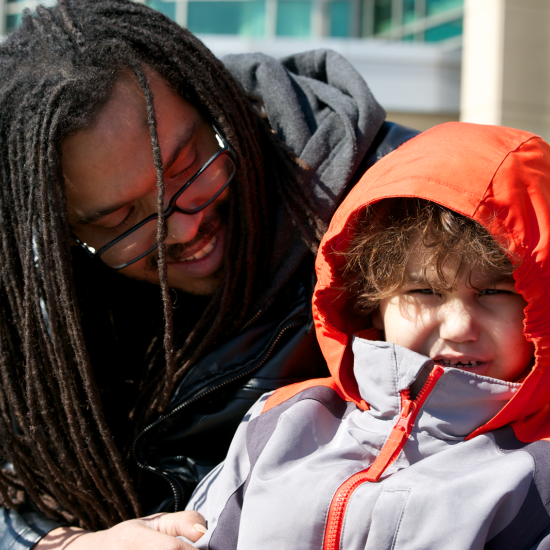From Homelessness to Housing, Families Achieve Stability through Self-Determination and Community Support
Once a family faces eviction or experiences homelessness in the Twin Cities, how do they eventually find a home? With community support from counties, shelters and local organizations, families take an active role in controlling their own choices and achieving stability. Case managers, social workers and counselors assess short- and long-term needs and work closely to help children, youth and adults every step of the way. By listening to and acknowledging each family’s unique circumstances, our aim is to support them on their self-determined path from homelessness to housing and stability.
If a family (or a person) fears homelessness or becomes homeless in the greater Saint Paul or Minneapolis area, these are the five stages of community support they can expect:
- They first contact 211 (United Way), which provides 24/7 help to anyone in Minnesota looking for immediate assistance with health and human services. United Way connects them with Ramsey or Hennepin County’s Coordinated Entry System, a statewide housing assistance system.
- County case managers complete an intake assessment to determine the assistance required. Upon completion, the eligible family is then put on a waiting list for openings in local shelters or subsidized housing programs.
- Based on eligibility and availability, counties and shelters then refer them to organizations, like Wilder, that manage such housing programs.
- Once program requirements are met and participation is confirmed, case managers and/or counselors from our team actively work with each family. We get to know them, listen to their concerns, gain a better understanding of their situation and help establish a prioritized list of goals, starting with finding a home.
- Families participating in Wilder’s housing programs can also tap into a variety of supportive housing services that include: rental assistance, employment training, educational support, financial coaching, access to primary, mental or chemical health care, domestic violence services and even childcare.
With a Housing First model at Wilder, at-risk or homeless families and individuals are quickly moved into affordable, permanent housing by working directly with our network of local landlords and affordable housing developers. Additionally, they can access supportive housing services that help address any destabilizing factors that led them to homelessness in the first place. The road from homelessness to housing involves a coordinated community effort, but we understand that the most important piece in this process is a family determined to make their own change and take control of their future.
